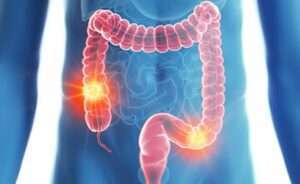El día 31 de marzo se celebra en todo el mundo el Día Mundial Contra el Cáncer de Colon, con el objetivo de sensibilizar a la población sobre las necesidades de los pacientes que padecen esta enfermedad y sobre la importancia de las campañas de prevención y el diagnóstico precoz.
Según la SEOM (Sociedad Española de Oncología Médica), el cáncer de colon será el segundo más diagnosticado en España tanto en hombres como en mujeres, por detrás de los cánceres de próstata y mama, respectivamente. Así, el cáncer colorrectal es el de mayor incidencia en nuestro país, con una estimación de casi 44.000 diagnósticos para este año 2021.
La calidad y la esperanza de vida de los pacientes con cáncer de colon ha mejorado mucho en los últimos años, especialmente gracias a los programas de cribado y a la eliminación de los factores de riesgo. Aun así, queda mucho por hacer y el abordaje del cáncer de colon sigue avanzando.
Factores de riesgo en el cáncer de colon
Existen diferentes factores de riesgo que no son evitables, como la edad, la predisposición genética, o haber padecido pólipos adenomatosos, cáncer colorrectal previo, enfermedad inflamatoria intestinal o diabetes tipo II no insulinodependiente.
Sin embargo, también existen factores de riesgo asociados a hábitos de vida poco saludables que sí se pueden evitar. Así, se recomienda reducir o eliminar el consumo de alcohol y tabaco, que
se ha visto que aumentan el riesgo de desarrollar pólipos en la mucosa del colon. También se deben evitar el sedentarismo y la obesidad. En el caso de la alimentación, se recomienda una dieta rica en fibra (fruta y verdura), calcio y vitamina D (lácteos, frutos secos, legumbres, pescado azul), ya que pueden actuar como protectores frente al cáncer de colon.
El SIBO y el cáncer colorrectal
Recientes estudios han demostrado que existe una estrecha relación entre el sobrecrecimiento bacteriano (SIBO) y el cáncer de colon. Así, se ha visto que en pacientes con cáncer de colon hay una mayor prevalencia de SIBO que en individuos sanos, y además ésta se encuentra asociada al uso de inhibidores de la bomba de protones. Asimismo, es conocido que los cambios postoperatorios en la estructura anatómica del tracto intestinal proporcionan a la microbiota un excelente caldo de cultivo para acabar desarrollando un SIBO.
Además, uno de los trabajos demostró que la intervención con probióticos ayuda a aliviar los síntomas gastrointestinales y a reducir el SIBO en los pacientes con tumores colorrectales. Sin embargo, se desconoce si el SIBO es preexistente al desarrollo del cáncer colorrectal y si constituye un factor de riesgo, o si más bien es una consecuencia de las cirugías y tratamientos a los que estos pacientes se ven sometidos.
Por tanto, es esencial realizar un diagnóstico precoz del SIBO para mejorar la salud intestinal y evitar el desarrollo de otras patologías (como permeabilidad, inflamación, alteraciones del sistema inmune, favorecer el desarrollo de tumoraciones, etc.), pero cobra especial relevancia en los pacientes con cáncer colorrectal, ya que su tratamiento puede mejorar la sintomatología digestiva y favorecer la recuperación del paciente, especialmente tras la cirugía.
- Effect of probiotics on small intestinal bacterial overgrowth in patients with gastric and colorectal cancer. Liang S et al. Turk J Gastroenterol 2016; 27(3):227-232.
- The study on small intestinal bacterial overgrowth in three kinds of digestive malignant Wei V et al. J Med Rev 2011; 17: 946-947.
- The study on association between small intestinal cancer and small intestinal bacteria over-growth along with its clinical meanings. Yang L et al. WCJD 2013; 31: 3435-3439.
- Prevalence and treatment of small intestinal bacterial overgrowth in postoperative patients with colorectal cancer. Deng L et al. Mol Clin Oncol 2016;4(5):883-887.

